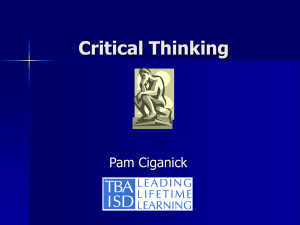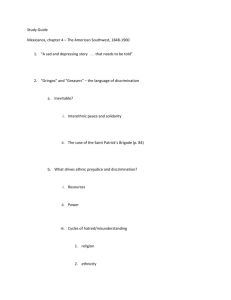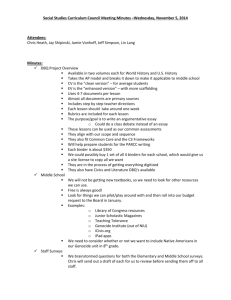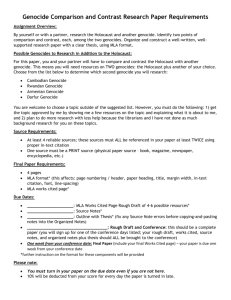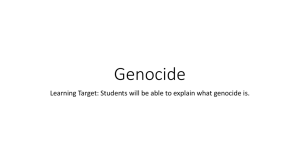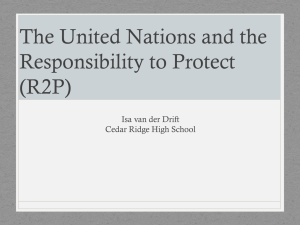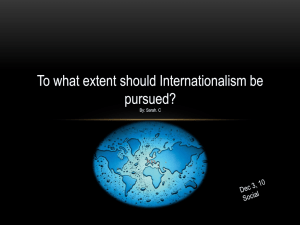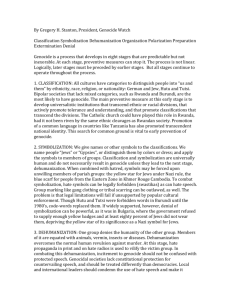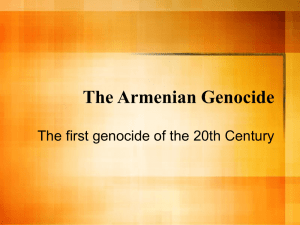Validated programes - Centre for Conflict Management
advertisement
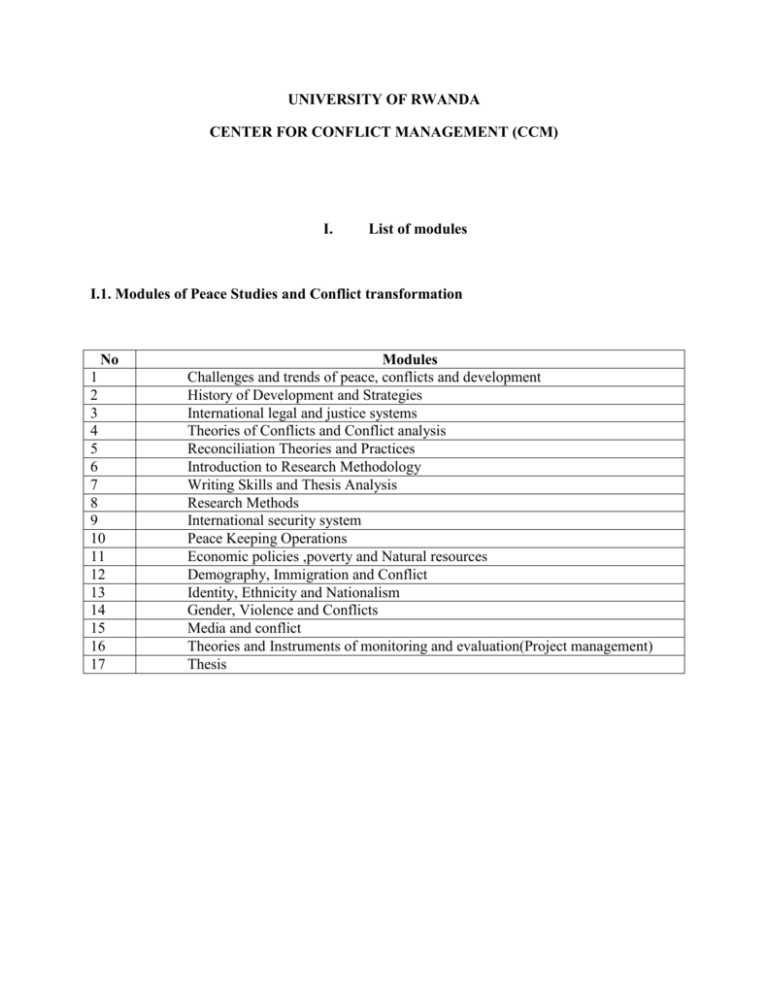
UNIVERSITY OF RWANDA CENTER FOR CONFLICT MANAGEMENT (CCM) I. List of modules I.1. Modules of Peace Studies and Conflict transformation No 1 2 3 4 5 6 7 8 9 10 11 12 13 14 15 16 17 Modules Challenges and trends of peace, conflicts and development History of Development and Strategies International legal and justice systems Theories of Conflicts and Conflict analysis Reconciliation Theories and Practices Introduction to Research Methodology Writing Skills and Thesis Analysis Research Methods International security system Peace Keeping Operations Economic policies ,poverty and Natural resources Demography, Immigration and Conflict Identity, Ethnicity and Nationalism Gender, Violence and Conflicts Media and conflict Theories and Instruments of monitoring and evaluation(Project management) Thesis I.2. Modules of Security studies N0 MODULE COMPONENT NAME 1. Data collection and analysis (techniques, sampling, analysis) 1 2 2. Essay and thesis writing (process, skills, ethical standards) Research Methods in 3. Research fundamentals: Theoretical and conceptual Social Sciences frameworks 4. Research design: statement of the research problem, research question, objectives… 1. Understanding security The Fundamentals of Security 2. State and human security 3. Economics of Security 4. The politics of global Security 1. Causes of War and Conditions of Peace 3 Security and Military History 2. Military history and international system: case studies 3. Military history and Africa: case studies 4. Rwandan military and security experiences Military History Case Study Presentations 1. Understanding public security and rule of law 2. National and International Legal/Justice Systems 4 Public Security, Rule of Law 3. Human rights and public security and Ethics 4. Oversight on accountability and transparency 5. Ethical Consideration and Approaches to Security 5 Understanding International Relations and the International System 1. International Relations: Theories and Approaches 2. The International System: Actors and Functions 3. Power and Balance of Power 4. Globalization and the International Political Economy 5. Global Terrorism and non proliferation of arms 6 Methodology Seminar Methodology Seminar (Advanced Research) 1. Introduction to Leadership and Management 2. Leadership 3. Management 4. Command 1.Understanding Contemporary Global Security Issues/Trends 7 Command, Leadership and Management 8 Regional and 2.Exploring key drivers of change and defense Global Security Trends 3. National Security 1. Policy and Strategy Formulation and Analysis The role of the State as a national and international actor 9 Policy and Strategy 3. Strategic Planning for Security and Development 3. Thinking and Acting strategically in national security matters LCM Presentations 1. Understanding conflict 10 11 12 Conflict Management and Resolution The changing Character of Security Thesis 2. Conflict and peace 4. Conflict intervention (mainstream and non mainstream) 3. The relationship between gender and conflict 5. Security Sector Management 1. An overview of the changing character of security 2. The implications of media on security 3. Psychological operations 4. Cyber security dynamics 5. Tomorrow’s war – A look into the future of warfare and terrorism 6. Strategic communication: Rwandan case I.3. Modules of Genocide Studies and Prevention No 1 MODULE THEORIES OF VIOLENCE, CONFLICTS, HUMAN RIGHTS VIOLATIONS & GENOCIDE 2 HUMANITARIAN AND INTERNATIONAL LAW 3 4 RESEARCH METHODOLOGY HISTORY OF GENOCIDE 5 EARLY WARNING VIS-À-VIS GENOCIDE THE PREVENTION OF GENOCIDE 6 7 8 9 INTERVENTION MECHANISMS DURING AND AFTER GENOCIDE POST GENOCIDE ISSUES LITERATURE, FILMS AND GENOCIDE RELIGION AND GENOCIDE DENIAL OF GENOCIDE 10 THESIS COMPONENT NAME 1. The psychology of mass hate & mass violence 2. Theories, causes and spectrum of violent conflict: human rights violations, ethnic cleansing, crimes against humanity, politicide, democide and genocide 1. An Historical overview of the evolution of humanitarian and international law 2. An Examination of court cases tried at the ICTR, ITCY, ICC & other international ad hoc tribunals 1. Social Sciences Methodologies 1. History of Genocide: The 19th, the 20th, and 21st centuries 2. History of the 1994 genocide against Tutsi in Rwanda 3. Comparative Study of Genocides 1. Genocide early warning signals 2. Genocide early warning systems 1. Addressing systemic Issues as a mode of Prevention 2. Conflict Resolution, Conflict Mgt, and Reconciliation as modes of prevention 3. Preventive diplomacy, peace keeping, sanctions, peace enforcement as modes of prevention 1. Interventions: components/processes 2. Peace operations 1. The post genocide period: critical issues 2. Challenges confronted by Post-Genocide Rwanda 1. Literature and Genocide 2. Films and Genocide 1. Religion and genocide: an overview 2. Religion and Denial: an in depth analysis of a single case 1. Comparative study of cases of denial 2. Exploration of the Denial of Genocide II. Number of credits assigned to each programme - III. Degree of Masters of Arts in Peace Studies and conflict transformation: 180 Credits Degree of Masters of Arts in Security Studies: 200 Credits Degree of Masters of Arts in Genocide Studies and Prevention: 240 Credits Postgraduate Diploma in Peace Studies and conflict transformation: 140 Credits Postgraduate Diploma in Security Studies: 130 Credits Programme exist awards III.1. Degree of Masters of Arts in: - Peace Studies and conflict transformation Security Studies Genocide Studies and Prevention III.2. Postgraduate Diploma in: - IV. - V. - - Peace Studies and conflict transformation Security Studies Date of accreditation Peace Studies and conflict transformation: 24/03/2010 Security Studies: 2013 Genocide Studies and Prevention: 24/3/2010 Authorized Campuses Peace Studies and conflict transformation: Police/Musanze Nyarugenge Campus Security Studies: Nyakinama Genocide studies and Prevention: Nyarugenge Campus VI. - Duration of the programme Peace Studies and conflict transformation: 2 Years Security Studies: 2 Years Genocide Studies and Prevention: 2 Years VII. - Number of Students: Academic Year 2015/2016 Peace Studies and conflict transformation/ Police Musanze: 31tudents Peace Studies and conflict transformation/Nyarugenge Campus: 16 Students Security Studies: 46 Students Genocide Studies and Prevention: -
